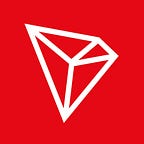Post BitTorrent acquisition letter from Justin Sun to TRON employees
On August 6, Justin Sun held his first all hands meeting with the new TRON family, post BitTorrent acquisition.
This event was an opportunity for him to talk about culture, the company’s visions, and how both teams will work together to build the largest decentralized ecosystem!
After this motivating speech, he shared this letter to TRON employees to reinforce his message and the company’s mission.
TRON and BitTorrent teams,
Hi everyone! Today is the first time that our teams from the US and China are meeting and it’s also the first all-hands since the acquisition. I’d like to talk about why we decided to acquire BitTorrent and our strategic plans for the entire TRON family, post-acquisition.
Contrary to speculation, the main reason for the acquisition isn’t BitTorrent’s more than 100M active users, and it isn’t for an amazing commercial opportunity. Yes, these things are great perks, but the more important reason is that BitTorrent has always been committed to one value, which is “Democratize the Internet.” This is very much in line with TRON’s “Decentralize the Web.” The fact that our values are in sync is the driving force behind this acquisition.
The Internet was decentralized when it was first created. Since Web 1.0 in the 80s, we believed that Internet services should be built upon an open protocol shared by the web community. Since then, we’ve created open protocol standards like TCP/IP and HTTP. The World Wide Web has become a cornerstone of the entire Information Age and a basic service that we’ve come to depend on.
BitTorrent was one of the most outstanding achievements during the height of the decentralization era. These achievements inspired people to imagine a world where a decentralized web was a permanent fixture. But reality hit soon enough.
Web 2.0, which was from the mid-2000s to 2011, profit-focused tech companies like Google, Apple, Facebook, Amazon, and Netflix started to create applications and services that overtook open protocols. These large corporations were all about profitability and monopolizing the market, and appealing to Wall Street as their primary capital market. The Internet was becoming centralized, just like the way Rome transitioned from a democratic society to an empire.
Web 3.0, 2012 to present. This era is all about mobility, dominated by smartphones and mobile apps, which exacerbated the centralized governance structure of Web 2.0. Billions of users around the world were more or less forced into a more complex and centralized Internet structure. Google, Apple, Facebook, Amazon, and Netflix became hugely successful in this new wave. Just last week, Apple’s market cap hit 1 trillion.
The centralized Internet structure started to trigger public fear. There are suspicions that the control Facebook has over global private data could have influenced the US general election; people are fearful of potential data monopoly by Google within the EU. Cyberpunk novels and movies reflect the fear and CONtroversy surrounding large corporations, technology, and excessive control from financial institutions. Some good examples are movies like TRON, The Matrix, and Blade Runner. TRON was the first comer in this category.
The mistrust in centralization naturally results in a public reaction where people are expecting government intervention to monitor big tech companies. However, history itself has been telling us repeatedly that the involvement of a more centralized power will only worsen the problem. That said, to introduce a strong authority out of fear of tech companies is just like seeking the protection of a vicious tiger if you’re afraid of wolves.
In order to address the issues brought by the centralized Internet, the solution will have to be decentralized. We will address all of these issues in Web 4.0 and create a better Internet for this era: a decentralized, mass-collaborative Internet governed by the community, with highly effective, available, and convenient Internet apps and services. From this perspective, the revolution of blockchain technologies is going beyond the blockchain industry, bringing about ground-breaking changes to the infrastructure of the entire Internet.
TRON intends to be the largest decentralized Internet ecosystem in the world. With the mission of making the Internet decentralized once again, we are dedicated to making decentralized Internet services available for everyone in the world.
As for our overall strategy, we will first strengthen the existing decentralized Internet infrastructure, and then explore the opportunities for developing the protocol layer and DApp layer.
1. We will develop the TRON Protocol and make sure it grows to be the largest and the most dynamic blockchain protocol in the world.
2. We will develop the BitTorrent Protocol and its applications to guarantee BitTorrent’s dominance in global decentralized content distribution. We will also work to optimize the BitTorrent Protocol with blockchain technology.
3. We will explore and develop other decentralized Internet protocols, in areas such as decentralized storage and cloud computing.
4. We will develop a series of decentralized apps based on decentralized protocols, so that everyone in the world can enjoy decentralized Internet services.
This is a long-term mission which will take 10 to 20 years to complete. I’m 28 now. I will devote my whole life to the revolution of Internet decentralization. TRON is committed to rejuvenating the revolution led by BitTorrent at the beginning of the 21st century, saving the Internet from centralized monopolies, and establishing a free, transparent, and decentralized Web 4.0.
Justin Sun
More pictures from the team, and our job opportunites on LinkedIn.
